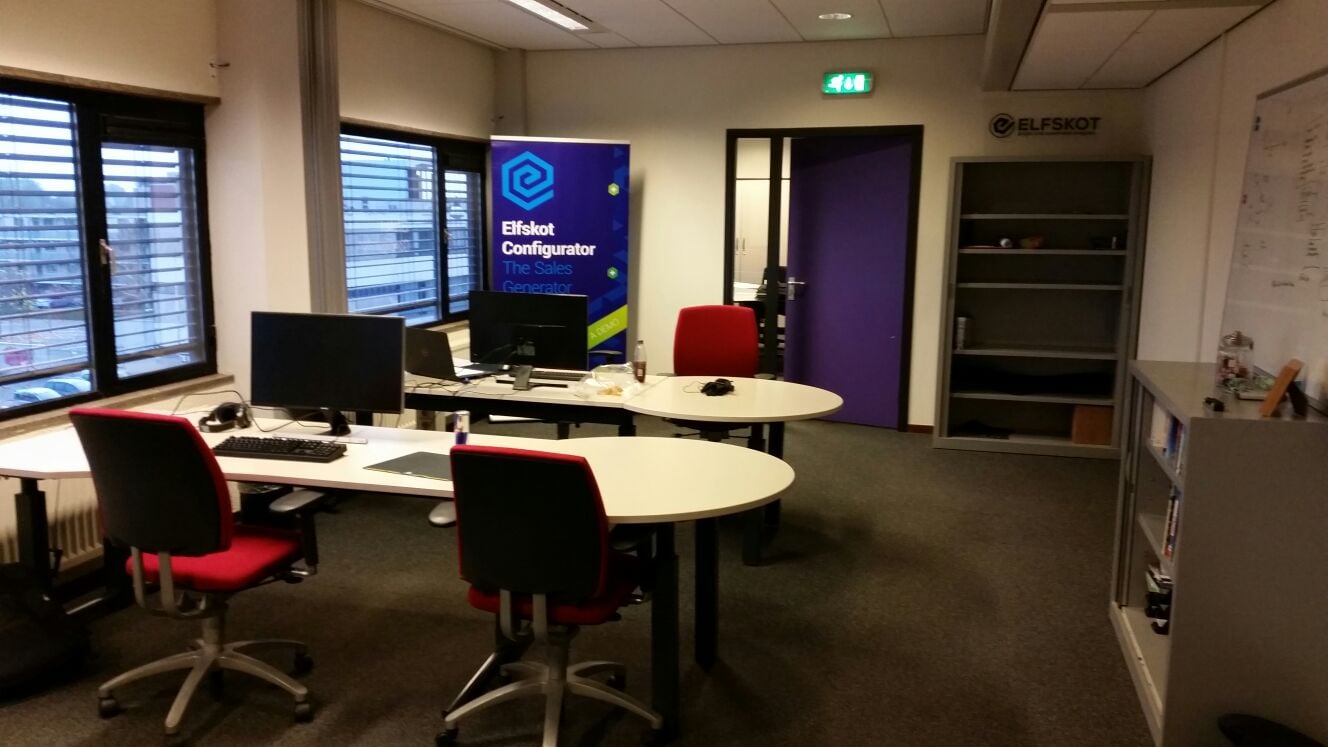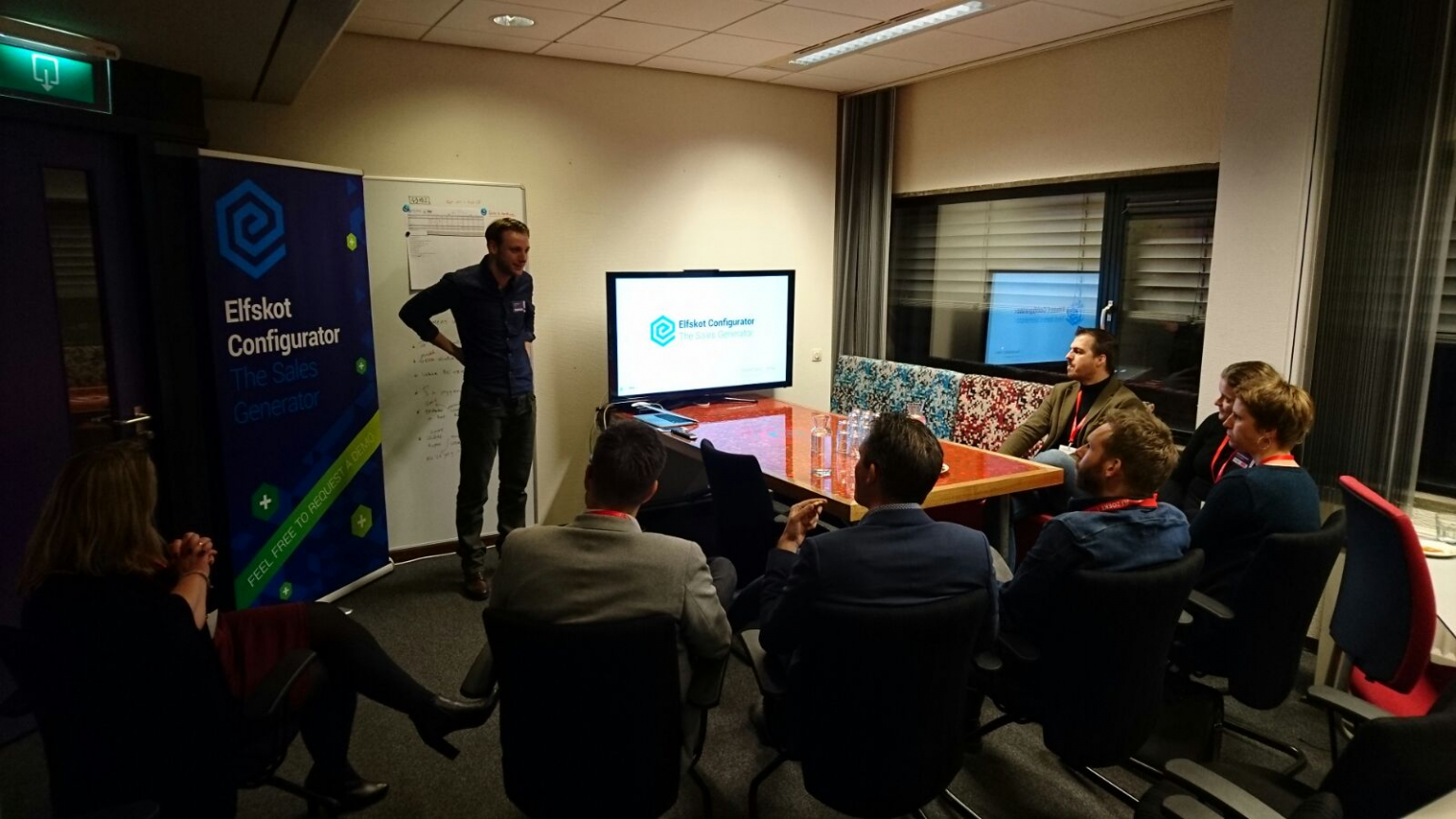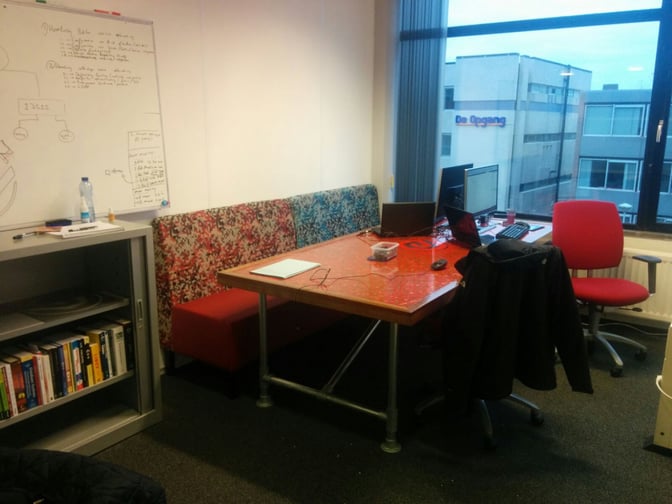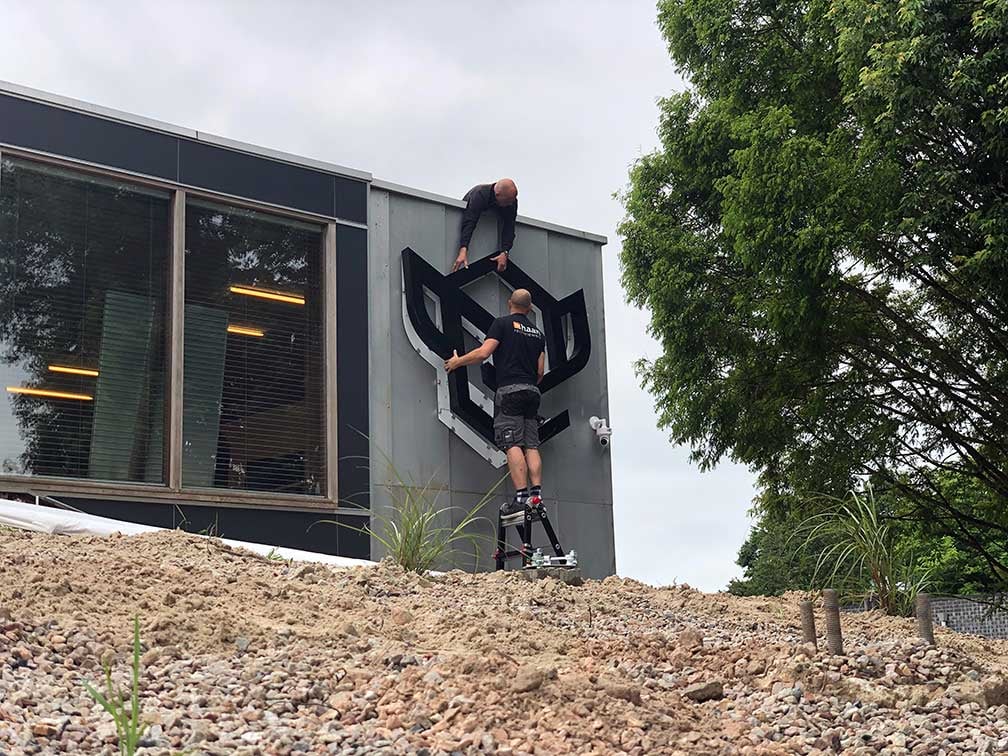Share this
The Story Behind Elfsquad
by Elfsquad on Dec 29, 2023 12:00:00 AM
In 2016 Jan Brolsma, together with Johannes Heesterman, founded the company Elfskot. Their goal: develop a configurator for highly-complex, customer-specific products, and reshape the manufacturing industry landscape. By now, Elfskot has been rebranded to ‘Elfsquad’; the milestone of 200 customers has been reached; and the duo has expanded to a growing Squad of 35+ colleagues and an experienced Advisory Board. Back then, it didn't seem like a simple task to convince the traditional manufacturing industry that self-service, AI-based CPQ software had become essential for their business. Fully in the cloud, on top of that. “But with a clear vision and proven software we managed to get more and more customers on board.”, Jan Brolsma explains.

Could You Tell Us Something About Your Educational and Professional Career Before You Founded Elfsquad?
Next to completing my coursework in Operations and Supply Chain Management, I gained experience working at multiple manufacturing businesses—first as an employee and later as a freelancer. I specialized in transitioning businesses to operate more efficiently based on customer orders. The concept was straightforward: initiate engineering, purchasing, and production processes only in response to actual customer demand. However, the reality involved tackling outdated IT systems that are very challenging to replace while keeping up with a rapidly-evolving market.
From a young age, I had entrepreneurial aspirations that strayed from the path of taking over my parents' butcher shop. Freelancing didn't quite fulfill my ambitions either. Armed with this background, I sought opportunities where I could use my expertise to support companies. I thrive on creative freedom and draw inspiration from a community of customers, colleagues, and advisors who all share the same vision, with me in the driver’s seat.
Why Did You Develop Elfsquad?
As a user, I've felt the frustration of wrestling with outdated IT systems firsthand. These systems were designed in an era before the internet, primarily for Generation X back-office employees, and were often implemented by consultants who thrived on customization fees rather than user-centric design.
CPQ software falls into this category too. It's not just costly to implement; it's also reliant on consultants for optimal use, which doesn't exactly enhance the user experience. Imagine starting a new job only to find yourself navigating through 10 screens just to make a simple adjustment—while you were expecting a YouTube tutorial, not a consultant hotline call.
By 2025, 75% of the workforce will be millennials, whose expectations are shaped by online experiences like configuring a BMW with a click. Yet, when it comes to purchasing industrial equipment, you're still flipping through thick catalogs with outdated pictures and incorrect prices. The inefficiency goes further. Instead of customers and salespeople filling in orders directly, someone ends up retyping entire orders—a process that screams for a more simplified solution.

Recognizing these universal challenges, we began exploring alternatives. Tired of the limitations imposed by legacy systems and outdated processes, we decided to take matters into our own hands. So, we rolled up our sleeves, looked around, and decided, "Let's build our own CPQ solution." And that's exactly what we did.

Elfsquad as a Startup: How Did the First Years of the Company Go?
In the early days, it was all about our vision—we hadn't built a product yet. People trusted us, especially those like Fred Sterk and Rene Boeijenga who backed us financially and served on our Advisory Board. Johannes and I started out in a tiny office on Berglaan in Drachten, where he'd spend days coding alone, even suggesting working in bustling restaurants to break the silence.
Those beginnings weren't easy. While big companies like Facebook and Google get the spotlight, they don't show the tough grind of developing complex software. With investors and customers counting on us, there was constant pressure to deliver. But that pressure drove us to create a solid product quickly.
The breakthrough came when our first ten customers not only believed in our vision but also saw real value in our product. It felt like a true turning point, witnessing our ideas come to life and seeing our user base grow. By 2019, we'd paid off debts and rebranded as Elfsquad, marking a pivotal moment in our journey. Revenue doubled in 2020, and we’ve been profitable every single year since, which I’ll humbly mention is extremely rare for a startup.
Why is Elfsquad so Dynamic?
The market shift to online operations has led to a rise in specialized software platforms that excel in specific business functions. Elfsquad represents this with its 'best-of-breed' approach—compact software finely tuned for top performance. This rise in specific tools has fragmented the IT landscape. In just five years, more applications have been developed than in the previous forty, creating a need for easy communication between these tools and putting more staring on scarce programming resources.
From the beginning, Elfsquad has recognized and tackled these challenges head-on. We focused on powerful API capabilities to allow seamless integration of different tools. Choosing Elfsquad means investing in skilled individuals who can manage and enhance these integrations. This guarantees that manufacturing businesses can adapt now and in the future. Thankfully, the workforce of tomorrow, skilled at using low-code platforms, is already prepared to meet these demands. I've witnessed firsthand that configurator requirements are ever-changing and impossible to fully grasp before implementation. Our no-code/low-code approach to Business-Led CPQ places configuration logic directly in the hands of the users, empowering them to adapt quickly to constant changes. Elfsquad has evolved beyond software sales to symbolize empowerment. Together, we embrace infinite complexity with maximum flexibility.
At Elfsquad, we never stop improving our software. For example, during the pandemic we introduced linked configurations. This allows easy nesting of different configurations into one comprehensive project, particularly beneficial for companies like WSP. Our introduction of blackbox integrations in the following years provided customers with unprecedented flexibility and connectivity. Moving forward, we're thrilled to announce the development of Archer 2.0, our advanced AI solver. This next-generation platform reflects years of collaboration with our customers, setting new industry standards and continuing our legacy of innovation-driven growth.

What Are You Proud of?
I am very proud of the people who work here: the Squad. Beyond that, we have a fantastic community of brilliant customers and partners. I see that the people who work with us truly breathe the vision that I had in the very beginning. I also notice the creativity, ambition, and ownership within all of them. This is what I gain the most energy from.
Our journey at Elfsquad has always been guided by a clear goal: revolutionizing the CPQ market. Today, we proudly hold the top CPQ vendor spot in The Netherlands and are quickly expanding across the EU and the USA. From two dreamers at a single table to a growing expert Squad across two locations, it’s truly amazing to see all that we’ve achieved together so far. And we’re ready for more.


